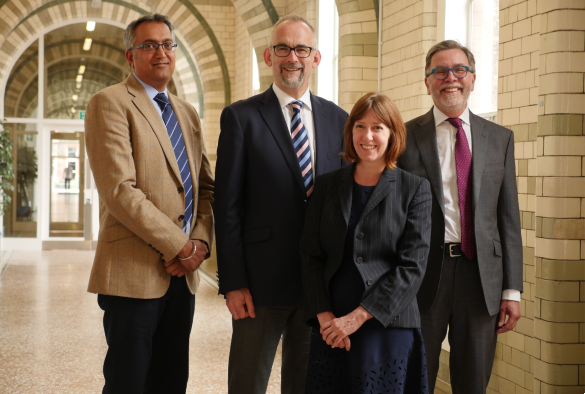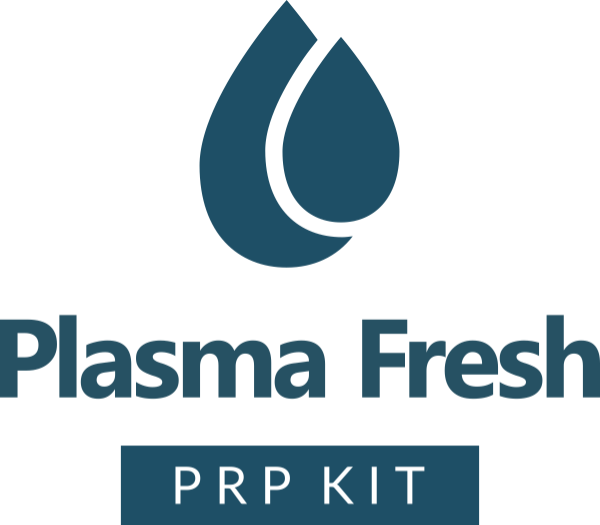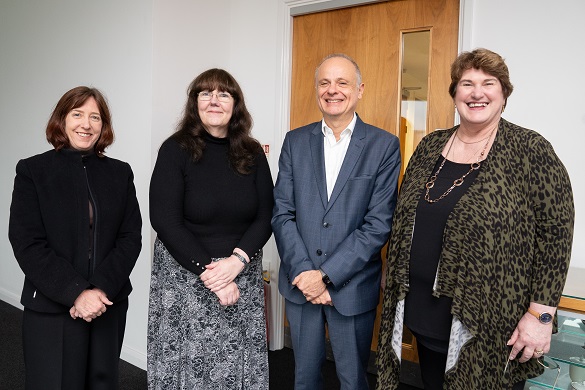The University of Liverpool is an institution in the North of England.
Founded in 1881 and home to over 30,000 students, the University has helped thousands of people pioneer new ideas and research.
The University of Liverpool is part of the UK’s ‘Russel Group’ – a group of Universities dedicated to research. Sometimes described as the ‘Ivy League’ of the UK, it ranks as one of the top 200 Universities in the world.
But it’s not just a place for learning. Associated with 9 Nobel Laureates, including Sir Charles Sherrington who discovered neutrons, it’s also a place of innovation.
It’s no surprise then that their enterprise arm, have helped create new technologies and products that are pioneers in their fields.
Here, we take a look at 10 impressive companies that were born out of Liverpool University.
![]()
Nidor Dx

Nidor Dx is setting out to improve the lives of those suffering with IBS. The company is developing a device that analyses compounds in stool samples.
From there, doctors will be able to more accurately diagnose IBS, helping them provide better (and more personalised) treatment plans.
As IBS is currently difficult to diagnose, this tool can not only help diagnosis, but personalised treatment strategies too.
PhenUtest Diagnostics
UTIs impact over 200 million people globally every year. PhenUtest are developing new diagnostic treatments that are fast (30 minutes), low cost and can identify the exact bacteria causing the infection – allowing the right antibiotic to be used.
This can help make sure that diagnosis and treatment is quicker and more effective.
Robotiz3d
Robotiz3d is on a mission to help make UK roads safer with their autonomous robot for road repairs.
As roads continue to age, this issue is costing the government millions every year to fix. By using AI and robotics, the company is helping to lower this cost and improve UK roads more efficiently.
More from Startups
- The Importance Of Founders Knowing What Their Startup Is Worth
- How To Launch A Startup In Cambridge
- The 7 Newest Unicorns in June 2025
- How Are Startups Impacting UK’s Energy Grid Upgrades?
- Founder of the Week: Maximilian Werner
- Experts Comment: How Can Startups Successfully Raise Capital at the Seed Stage?
- Startup of the Week: utu
- Experts Share: How Will A Possible Wealth Tax Impact Startups And Entrepreneurs?
AI-Sight

AI-Sight is setting out to use AI to reduce vision loss for people living with diabetes.
Currently affecting over 500 million people globally, with 40% suffering from eye-related issues as a result, it’s one of the most common forms of blindness. AI-sight’s device uses AI to improve eye screening and prevent blindness, helping to improve treatment.
Sulantrix

Sulantrix is a company that is setting out to find new ways to treat cancers that are currently drug resistant.
By focusing on pseudokinases and pseudoenzymes, they can find new ways to target unhealthy cells and improve the ways that they respond to treatments.
SenseAI

SenseAI is an AI company that is changing the way medical images are captured and analysed.
The company is helping to reduce the amount of eyes needed on an image, instead using AI to track any changes. This not only makes it less expensive and more accurate, but quicker too.
This can help treatment start faster, saving lives in the process.
ThioTech
Mercury can cause both health and environmental issues. ThioTech has created technology that is able to capture these toxic compounds of mercury in a new and efficient way.
Their technology has already won awards for reducing mercury emissions, helping to more effectively clean up waste and reduce the amount of mercury that makes its way into fish, and therefore humans during consumption.
Plasma Fresh

Plasma Fresh has developed a solution that creates a cheaper, safer and more reliable way to decontaminate food, without relying on harsh chemicals.
By using cold air plasma, companies can offer safe and sanitary food at an affordable price.
OCUWELL

Ocuwell is helping to create new corneal assessment technology that can help prevent, diagnose and treat eye issues.
These devices can be expensive and are not always available. However, OCUWELL’s device is small, portable and affordable, allowing health care professionals to use it more readily.
This can help diagnose and prevent eye issues before they get worse, helping to improve patient outcomes.
TrophiCell

TrophiCell is developing a new way to harness the potential of adult stem cells (MSCs). The company is looking at news ways to develop cells that could help treat a range of diseases.
Though these therapies already exist, TrophiCell is helping to make them more scalable and cost-effective for institutions like the NHS.




